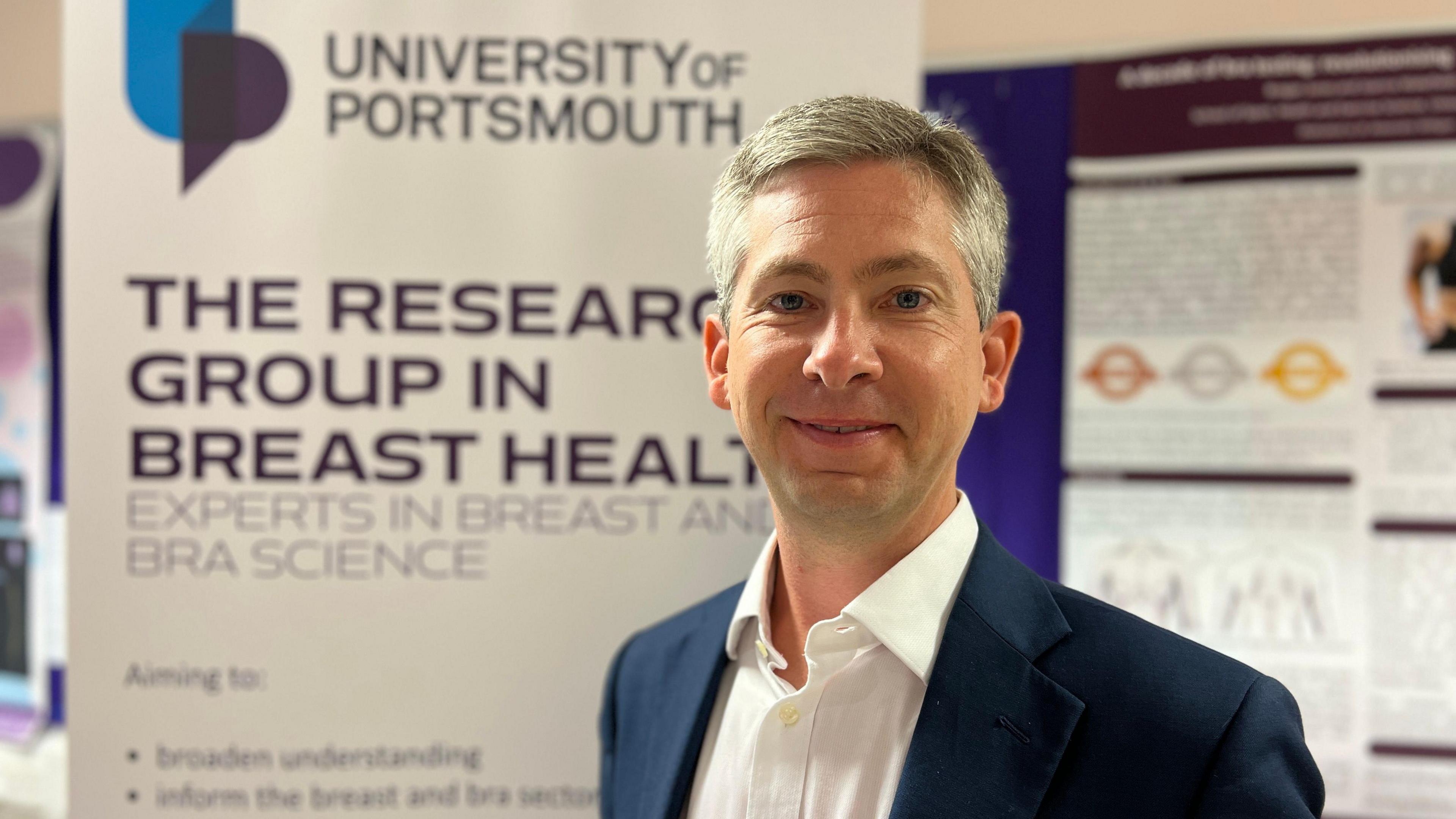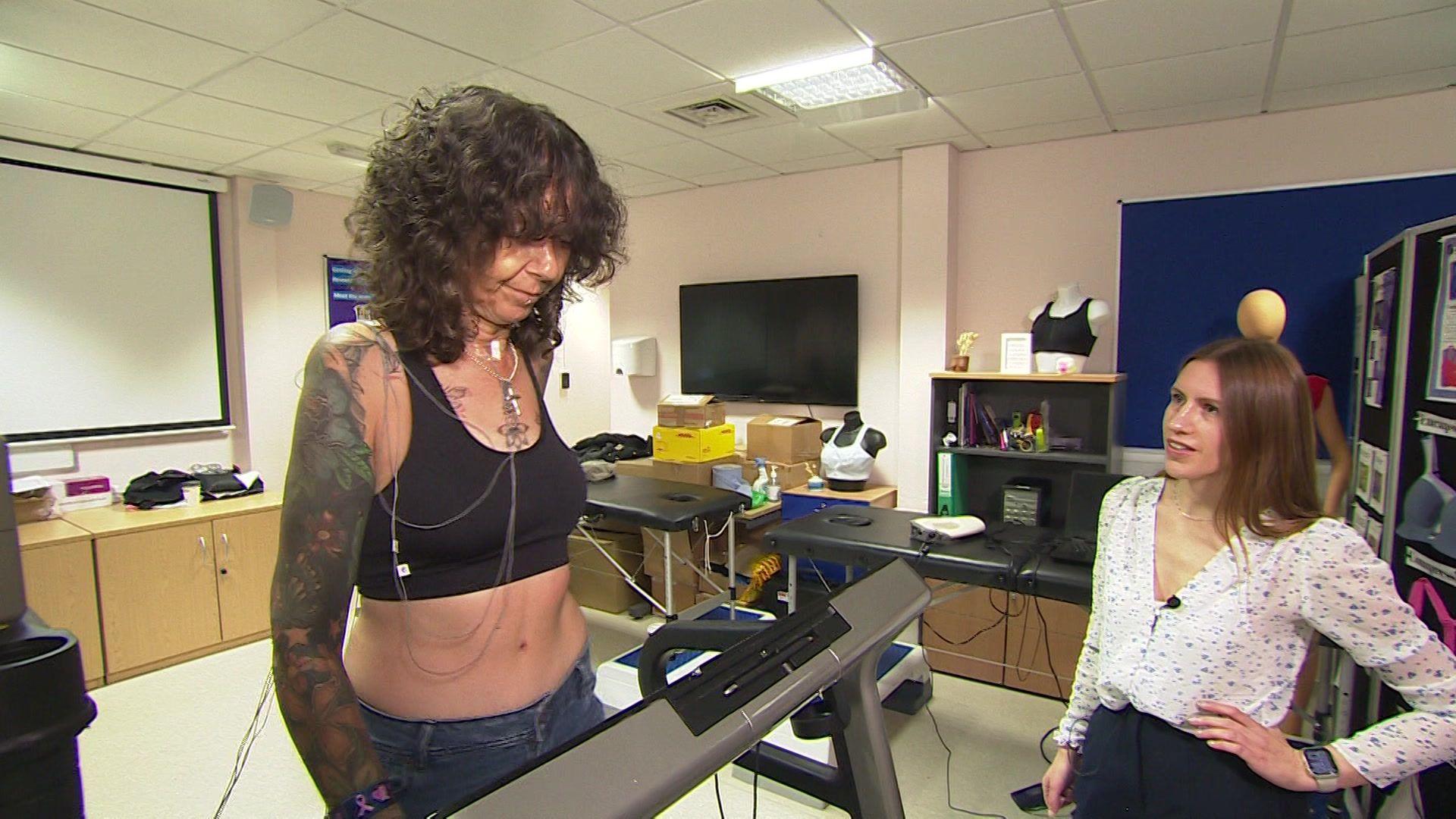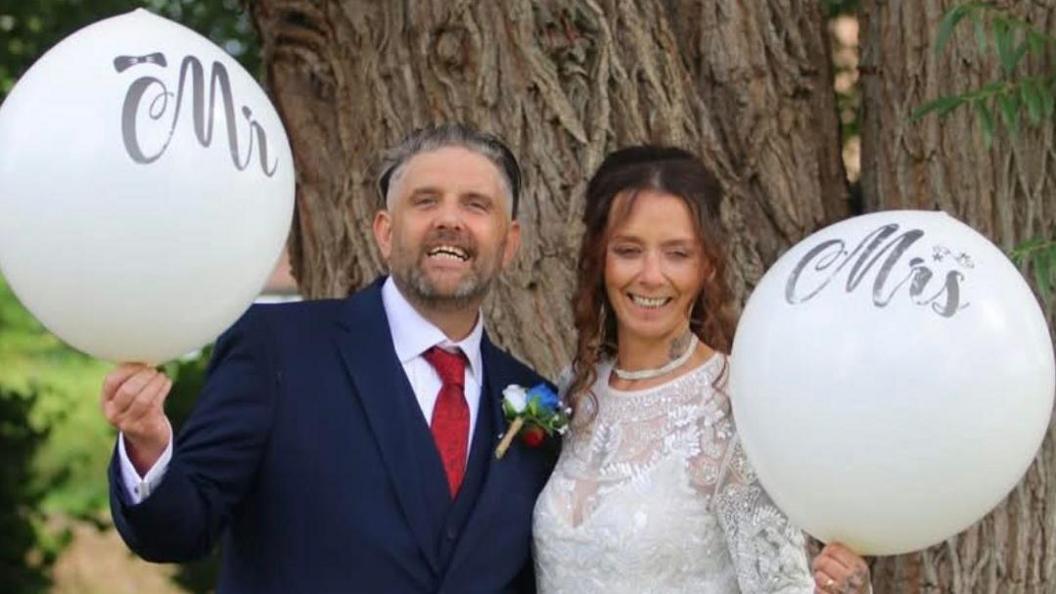Hospital and university developing new cancer bra
(L-R) Miriam, Ingrid and Celeste are all breast cancer patients who took part in the study
- Published
A world-first study is taking place at Portsmouth Hospital to find out if breasts change during cancer and if a suitable bra can be developed.
The research is examining how breast biomechanics - shape, look, size feel - change pre and post surgery, as well as after radiotherapy.
The hope is that the findings, set to be released next year, will help bra manufacturers to improve comfort, reduce the potential of tissue damage and help women return to exercise.
The study is being undertaken by the University of Portsmouth and Portsmouth Hospitals University NHS Trust.
Similar types of technology have been used to develop sports bras, but never for breast cancer patients.
Professor Edward St John said: "If we can design better bras that are more comfortable to exercise in, there is good data to show that exercise does decrease the chance of cancer coming back and improve overall survival."

Surgeon Edward St John has worked with the cancer patients involved in the study
Currently, post-surgery women are given a compression bra, but Mr St John said there was no evidence this was beneficial.
"Traditionally the view has been the more compressive the bra the better, but we don't really know if that's the case" he said.
"As we learn more about how the bra moves after surgery so I think we can design better bras that aid healing post operative and are more comfortable."
The study, part-funded by Wessex Health Partners, works by attaching sensors and motion detectors to breast cancer patients' breasts and torso.
A 3D scanner looks at their movement, and researchers receive patient feedback on bras and exercise after treatment.
So far 49 women have taken part, with at least 60 expected before the study ends.

The breast biomechanics are measured when walking a on a treadmill to test movement
Celeste Ingram is one of the patients taking part in the trial. She found out she had cancer four days into her honeymoon.
"I kept getting a call from Queen Alexandra Hospital, but I was swiping it away until my partner told my to answer," she said.
"I ended my honeymoon early and came back, that's where Mr Ed St John told me I had cancer."
The 50-year-old, who is a keen runner, is hoping being apart of the trial will help others.
"Normally you have cancer and then you go on your way. But it's nice to be a part of this and have input," she added.

Celeste Ingram had biopsies taken shortly before her wedding
In the UK, one in seven women will get breast cancer in their lifetimes, according to Cancer Research UK.
Clinical research fellow in breast surgery Amy Huseyin said it was also becoming more prevalent.
"The survivorship figures are growing, there's estimated to be 600,000 breast cancer survivors living in the UK, but that's predicted to rise to 1.2 million by 2030," she said.
"So there's a huge population of women living with these long term impacts."
Professor of biomechanics and research group in breast health lead Joanna Wakefield-Scurr said the study was "a really new, novel project".
"To date, there's been no research looking at the changes in the movement and the support requirements of the breast post surgery," she said.
"The bra manufacturing industry asks us for this data, and now we will be able to share it with them."
Mr St John added: "Though it may not be helping the patients now, it will be able to provide information that could help bra design and recommendations in the future."
Get in touch
Do you have a story BBC Hampshire & Isle of Wight should cover?
You can follow BBC Hampshire & Isle of Wight on Facebook, external, X (Twitter), external, or Instagram, external.
Related topics
- Published27 October 2011